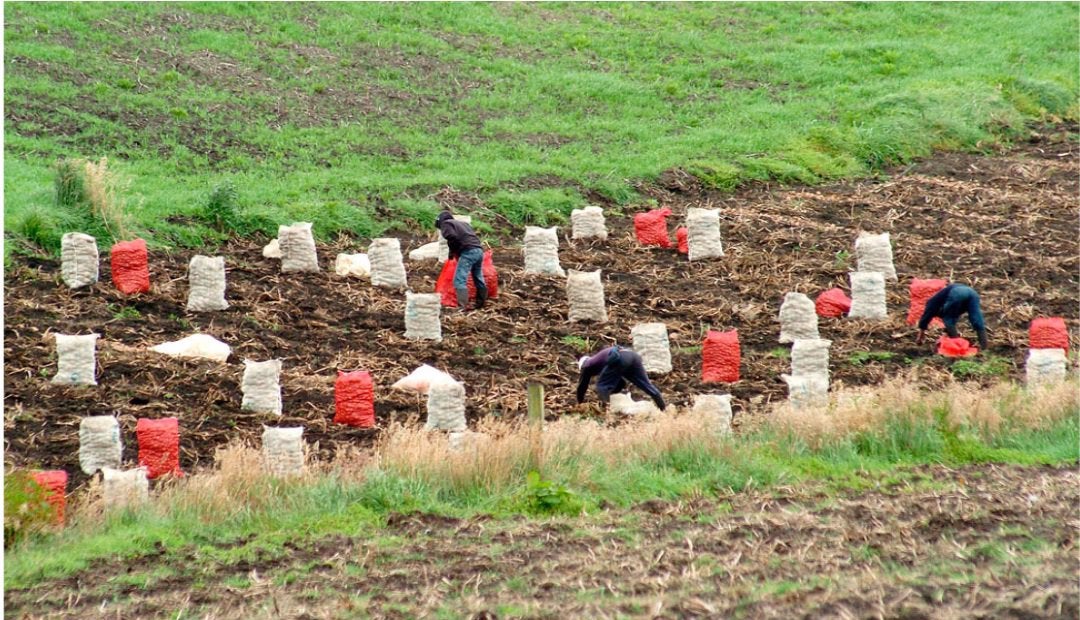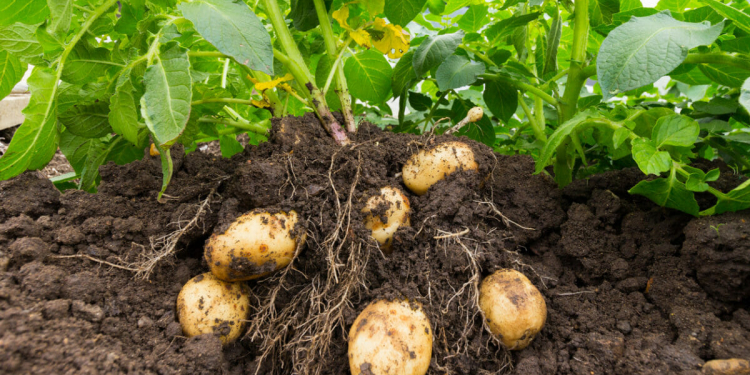The study carried out on 109 genotypes demonstrated the tolerance of some varieties after having subjected them to a water deficit
After studying the DNA of 109 genotypes (types of Creole potato with unique characteristics), and having subjected them to water deficit for certain periods of time, five of them with potential for drought tolerance were identified.

The tolerance of the genotypes that demonstrated these characteristics were CCC059, CC103, CCC116, CCC140 and CCC 141 was studied at both the field and genetic level. In the first case, it was observed that they were the potatoes that were less dehydrated, and as for the genome (or DNA of the plants), it was determined from aquaporins, proteins that regulate water in the plant.
The research establishes important bases for understanding a trait of interest in agriculture and for future breeding programs that allow the development of potato varieties that are adaptable to drought conditions and that can be used by producers.
This was explained by the agronomist Lina María López Contreras, Master in Agricultural Sciences in the Genetics and Plant Breeding research line at the National University of Colombia, Bogotá Headquarters.
Genetic analysis identified “molecular markers” in the potato genome and in genes related to aquaporins. Identifying molecular changes is finding changes in the DNA sequence (mutations) that can be associated with this tolerance to water stress.
Said changes or mutations were identified in the 109 genotypes evaluated, which correspond to the Unal Plant Breeding Program Work Collection. With the data in the field, it was corroborated which Creole potatoes were the least dehydrated, so that DNA regions could be associated with tolerance to water deficit.
In addition to the resistant genotypes themselves, genes related to the response at the hormonal level were also found that help prevent dehydration, leaving a promising basis for developing other varieties of Creole potato that are also tolerant.
The research, directed by Teresa Mosquera Vásquez and co-directed by Johana Carolina Soto Sedano, professors of the university institution, contributes to give value to Colombian genetic resources since this material has been used before in different studies at the nutritional and disease resistance level. .
In this study, water stress tolerance markers were sought, for which the 109 genotypes were planted in greenhouses and irrigation was suspended for one part for 15 days to simulate conditions of lack of water and stress the plants. Other plants were kept under constant watering to later compare the responses and see how the yield and final production were affected.
For four months López monitored the water status of the plants. The data collected in that period were associated at the genetic level with the database fed with the genetic studies carried out at Unal. These data made it possible to identify genomic regions or changes in DNA that occur in plants to be able to associate them with stress tolerance.
After four months, the harvest was carried out, in which, with statistical analysis, the plants that most withstood these stress conditions were grouped, identifying key genotypes (more tolerant).
To complement the genetic analysis, DNA was extracted from all the potatoes in order to identify changes in the sequences of the genes that are related to aquaporins.

Although genetic studies had already been carried out in Creole potatoes, this is the first one carried out for the trait of tolerance to water stress. It is also part of a world scenario of climate change as a consequence of global warming.
Potatoes produce more food per liter of water than most grains, which has made the crop increasingly important in arid regions. A good potato crop requires 400 to 800 mm of water, which under a plant density of 40,000 plants per hectare, corresponds to 100 to 200 liters of water per plant, depending on climatic conditions, soils and duration of the growing season. However, vast areas get less than 250 mm of precipitation annually.







